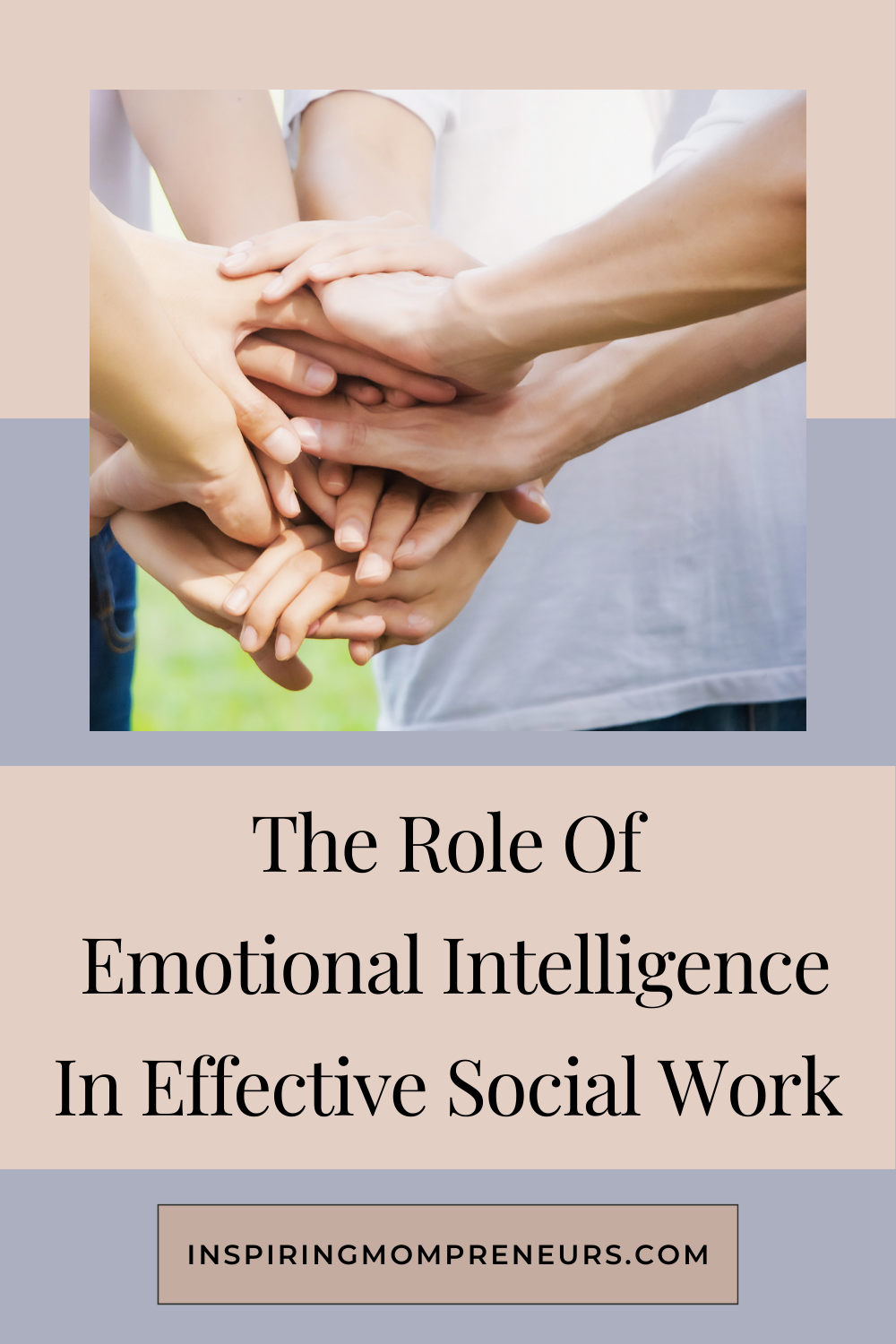Emotional Intelligence (EI) refers to the ability to recognize, understand, and manage or control our own emotions, as well as the ability to recognize, understand, and influence the emotions of people around us.
In social work, EI is especially important because it enhances the ability to connect with clients, understand their needs, and provide the most effective support.
Social workers often encounter individuals in stressful or vulnerable situations, and having a high level of emotional intelligence helps them navigate these interactions with empathy and effectiveness.
This article explores the role of emotional intelligence in improving social work practice.
The Role of Emotional Intelligence in Effective Social Work Practice
Importance of Developing Emotional Intelligence
Developing emotional intelligence is crucial for social workers. It allows them to manage their emotional responses and better understand the emotions of their clients. This understanding is key to providing effective support and intervention.
Social workers with high emotional intelligence are more adept at managing stress, handling challenging situations, and avoiding burnout. They can maintain a calm and composed demeanor even in high-pressure environments, which is essential for maintaining the trust and confidence of their clients.
Academic institutions, including online schools, play a significant role in instilling these skills in their students. Through coursework and practical training, students learn about the components of emotional intelligence and how to apply them in their professional practice.
For those already working or unable to attend traditional classes, enrolling in an online school for social work offers the flexibility to gain these essential skills without disrupting their current responsibilities. These programs ensure that graduates are well-prepared to handle the emotional complexities of the social work profession.
Building Strong Client Relationships
Building strong, trusting relationships with clients is at the heart of effective social work practice. Emotional intelligence is vital in this regard because it enables social workers to empathize with their clients and understand their perspectives.
By showing genuine empathy and concern, social workers can build rapport and trust, which are crucial for effective intervention. Clients are more likely to open up and engage in the support process when they feel understood and respected.
Key components of emotional intelligence, such as active listening and emotional regulation, play a significant role in fostering these relationships.
Active listening entails giving complete attention to the client’s words, comprehending their message, responding thoughtfully, and recalling what was discussed.
Emotional regulation enables social workers to control their own emotions and stay calm, even when clients are expressing intense feelings. These skills help social workers create a safe and supportive environment where clients feel valued and heard, leading to better outcomes.
Enhancing Communication Skills
 Effective communication is a cornerstone of successful social work practice. Emotional intelligence greatly enhances a social worker’s ability to communicate both verbally and non-verbally.
Effective communication is a cornerstone of successful social work practice. Emotional intelligence greatly enhances a social worker’s ability to communicate both verbally and non-verbally.
Social workers need to convey information clearly and compassionately, ensuring that clients understand the support and resources available to them. Emotional intelligence helps social workers to tailor their communication style to the needs of each client, making interactions more meaningful and effective.
Understanding and interpreting clients’ emotional cues is another critical aspect of communication in social work. Social workers with high emotional intelligence can pick up on subtle non-verbal signals, such as body language, facial expressions, and tone of voice. These cues often reveal more about a client’s feelings and needs than words alone.
By being attuned to these signals, social workers can respond in a way that is supportive and validating, which helps to build trust and rapport with clients. Enhanced communication skills lead to more effective interventions and better overall outcomes for clients.
Managing Stress and Avoiding Burnout
Emotional intelligence is a critical factor in helping social workers manage stress and avoid burnout. The nature of social work often involves dealing with high-stress situations and emotionally charged environments.
Social workers frequently encounter clients in crisis, which can take an emotional toll. By developing emotional intelligence, social workers can better understand their emotional responses and implement strategies to manage stress effectively.
One key aspect of emotional intelligence is self-awareness, which allows social workers to recognize when they are feeling overwhelmed and need to take steps to care for their mental health. Techniques such as mindfulness, regular self-reflection, and seeking supervision or peer support can help social workers process their experiences and maintain emotional balance. Incorporating self-care practices that align with emotional intelligence principles, such as setting boundaries and engaging in activities that promote relaxation and well-being, can significantly reduce the risk of burnout.
Improving Conflict Resolution Skills
Conflict is an inevitable part of social work, whether it arises between clients, within families, or among colleagues. Emotional intelligence plays a vital role in resolving these conflicts effectively. Social workers with high emotional intelligence can navigate challenging interactions with greater ease, using their skills to de-escalate tensions and find constructive solutions. Key components of EI, such as empathy and emotional regulation, are essential for understanding different perspectives and responding calmly under pressure.
By applying emotional intelligence in conflict resolution, social workers can facilitate open and honest communication, helping all parties involved to express their concerns and work towards a resolution. Techniques such as active listening, validating emotions, and fostering a collaborative approach can turn potential conflicts into opportunities for growth and understanding. These skills not only improve outcomes for clients but also contribute to a more harmonious work environment.
Fostering a Collaborative Work Environment
A positive and collaborative work environment is crucial for the effectiveness and well-being of social workers. Emotional intelligence contributes significantly to creating such an environment. Social workers with high EI can inspire and support their colleagues, fostering teamwork and cooperation. By being attuned to the emotions of others and demonstrating empathy and understanding, they can build strong, positive relationships within their teams.
Leadership in social work also benefits from emotional intelligence. Leaders who possess high EI are better equipped to motivate their teams, manage stress, and navigate the complexities of their roles. They can create an environment where staff feel valued and supported, leading to higher job satisfaction and better service delivery. Encouraging a culture of emotional intelligence within social work organizations can enhance collaboration, reduce conflicts, and improve overall organizational efficiency.
Conclusion
Emotional intelligence is a cornerstone of effective social work practice. By developing EI, social workers can better manage their own emotions, understand and empathize with clients, and create strong, supportive relationships. Advanced education provides the necessary foundation to develop these skills. Enhanced communication, stress management, conflict resolution, and fostering a collaborative work environment are all benefits of high emotional intelligence. As the field of social work continues to evolve, the importance of EI in delivering compassionate and effective support cannot be overstated.


